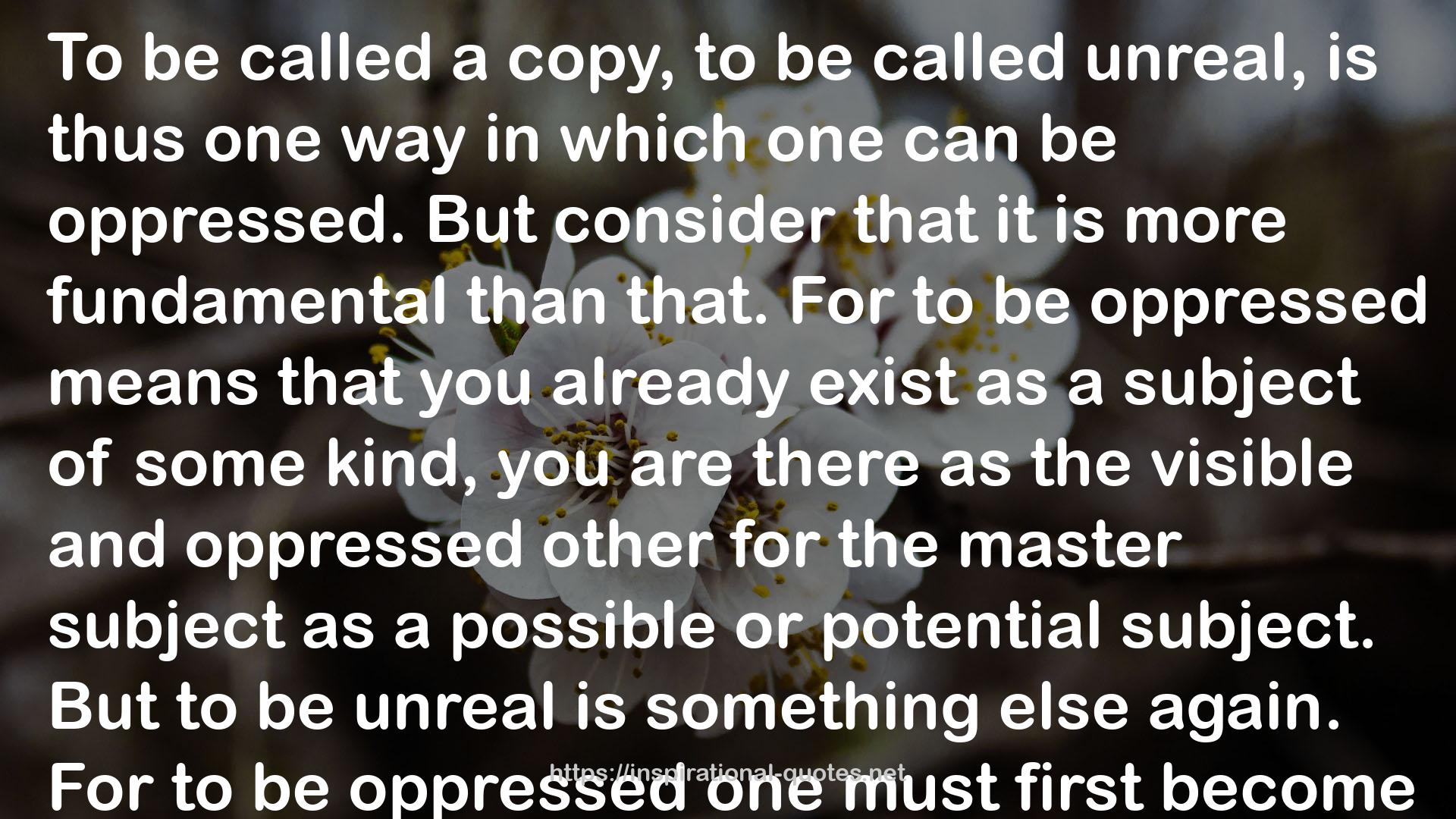4
" Let's face it. We're undone by each other. And if we're not, we're missing something. If this seems so clearly the case with grief, it is only because it was already the case with desire. One does not always stay intact. It may be that one wants to, or does, but it may also be that despite one's best efforts, one is undone, in the face of the other, by the touch, by the scent, by the feel, by the prospect of the touch, by the memory of the feel. And so when we speak about my sexuality or my gender, as we do (and as we must), we mean something complicated by it. Neither of these is precisely a possession, but both are to be understood as modes of being dispossessed, ways of being for another, or, indeed, by virtue of another. "
― Judith Butler , Undoing Gender
6
" Let’s face it. We’re undone by each other. And if we’re not, we’re missing something. If this seems so clearly the case with grief, it is only because it was already the case with desire. One does not always stay intact. It may be that one wants to, or does, but it may also be that despite one’s best efforts, one is undone, in the face of the other, by the touch, by the scent, be the feel, by the prospect of the touch, by the memory of the feel. "
― Judith Butler , Undoing Gender
10
" An ethical query emerges in light of such an analysis: how might we encounter the difference that calls our grids of intelligibility into question without trying to foreclose the challenge that the difference delivers? What might it mean to learn to live in the anxiety of that challenge, to feel the surety of one’s epistemological and ontological anchor go, but to be willing, in the name of the human, to allow the human to become something other than what it is traditionally assumed to be? This means that we must learn to live and to embrace the destruction and rearticulation of the human in the name of a more capacious and, finally, less violent world, not knowing in advance what precise form our humanness does and will take. It means we must be open to its permutations, in the name of nonviolence. As Adriana Cavarero points out, paraphrasing Arendt, the question we pose to the Other is simple and unanswerable: “who are you?” The violent response is the one that does not ask, and does not seek to know. It wants to shore up what it knows, to expunge what threatens it with not-knowing, what forces it to reconsider the presuppositions of its world, their contingency, their malleability. The nonviolent response lives with its unknowingness about the Other in the face of the Other, since sustaining the bond that the question opens is finally more valuable than knowing in advance what holds us in common, as if we already have all the resources we need to know what defines the human, what its future life might be. "
― Judith Butler , Undoing Gender
11
" Moreover, fantasy is part of the articulation of the possible; it moves us beyond what is merely actual and present into a realm of possibility, the not yet actualized or the not actualizable. The struggle
to survive is not really separable from the cultural life of fantasy, and the foreclosure of fantasy-through censorship, degradation, or other means-is one strategy for providing for the social death of persons. Fantasy is not the opposite of reality; it is what reality forecloses, and, as a result, it defines the limits of reality, constituting it as its constitutive outside. The critical promise of fantasy, when and where it exists, is to challenge the contingent limits of what will and will not be called reality. Fantasy is what allows us to imagine ourselves and others otherwise; it establishes the possible in excess of the real; it points elsewhere, and when it is embodied, it brings the elsewhere home. "
― Judith Butler , Undoing Gender

